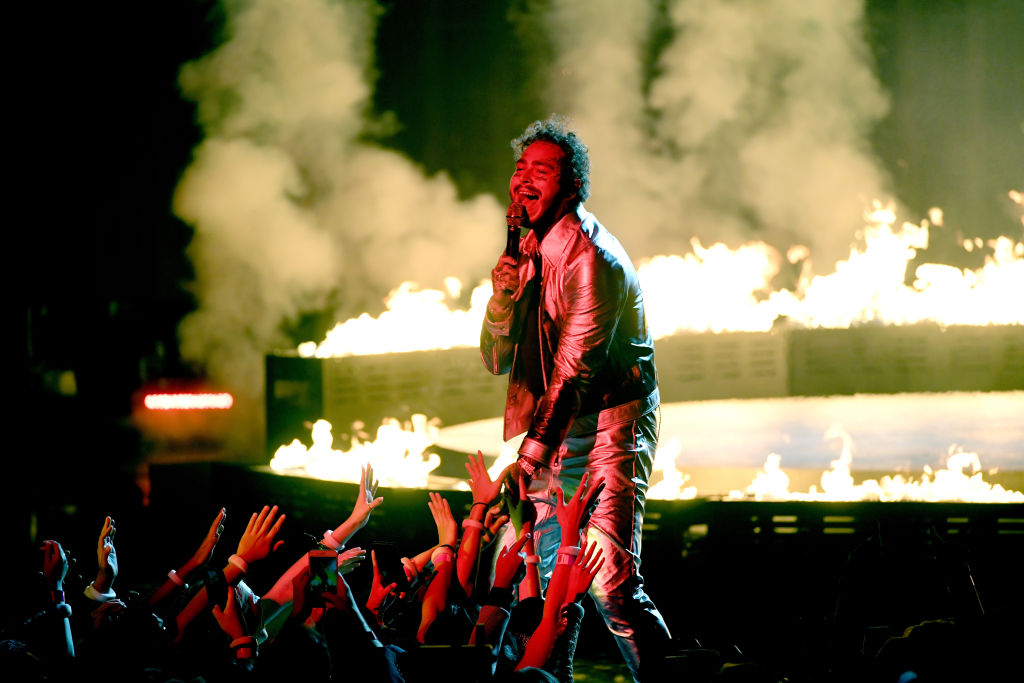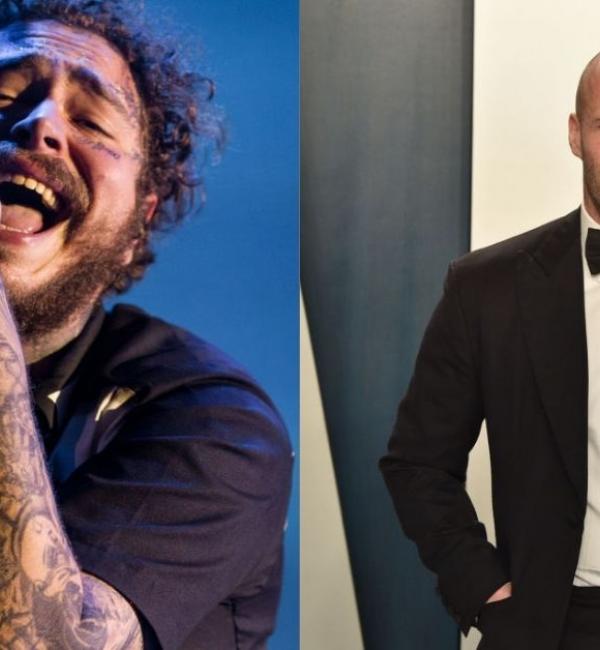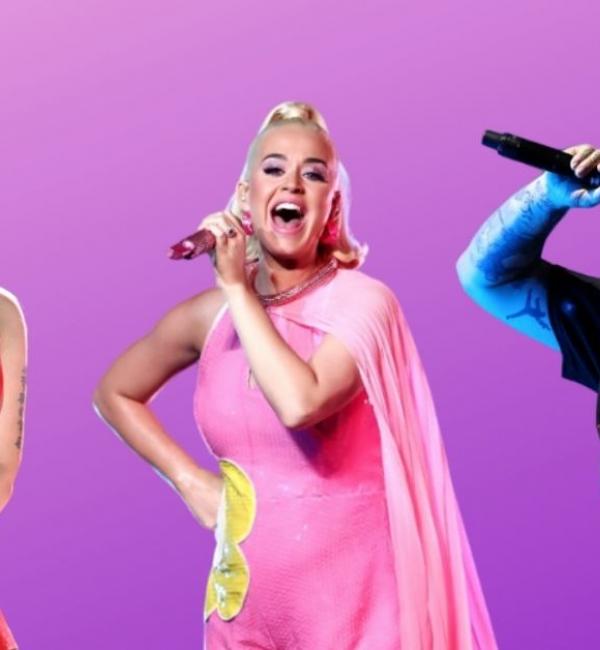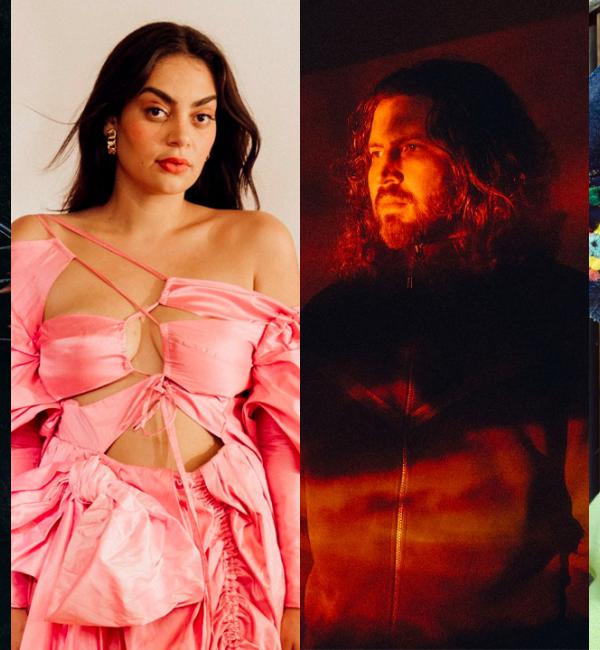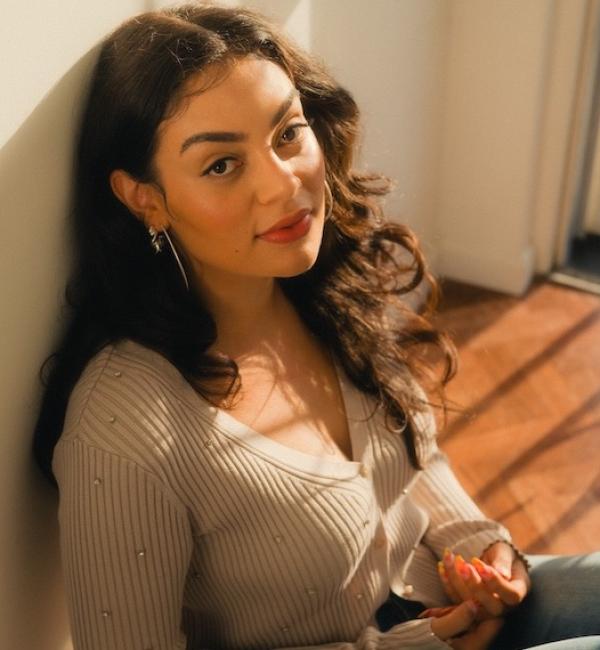
2015 was a tipping point for hip hop, where enthusiasts and music critics alike narrowed their critical eye over rap's nascent sing-song flow. This made the arrival of White Iverson something to behold. As the story goes, Post Malone (FKA Austin Richard Post) uploaded the song, a loose nod to basketballer Allen Iverson, on February 4, 2015.
Now, exactly five years later, Malone is one of the biggest stars in the world. Though, his rise to the top was riddled with controversy. White Iverson was as divisive as it was infectious. There was no way around the fact that this white teenager was comparing himself to a legendary baller, co-opting African American slang while donning fuzzy braids. For some, it was an uncomfortable double standard they were willing to overlook for the merits of the song. In contrast, others, especially black critics and artists, questioned the up-and-coming star. As he faced scrutiny for appropriating black culture, even being called 'the Donald Trump of hip-hop,' Malone's success exploded.
What looked like overnight success took years of behind the scenes work — though he was already working with a savvy team of marketers, managers, and producers even before the release of White Iverson. Growing up in Dallas, Malone's father was a wedding DJ, and Guitar Hero II piqued his interest in music. From there he learned how to play the guitar, performed in a slew of rock bands, rapped and eventually moved to Los Angeles to realise his dreams. According to The New Yorker, it was here he shared a place with other aspiring artists including gamers and YouTubers.
The viral success of White Iverson scored the Dallas singer a deal with Republic Records who released it as the lead single off of his debut album, Stoney. The song was certified 5x Platinum by the Recording Industry Association of America (RIAA) for sales of five million digital copies, leading some to speculate whether he was just a one-hit-wonder. Others called him an industry plant. Then his debut album, Stoney, went double platinum. Features from Kehlani, Quavo, 2 Chainz and Justin Bieber helped its cause, but it was, in fact, Malone's larger than life personality, his cheeky Southern charm and his quivering high notes that had people hooked. Songs like Congratulations, I Fall Apart and Go Flex fit right into hip-hop's new melancholy groove.
Today, Malone is at a stage of pop ubiquity rivalled only by the likes of Beyoncé, Rihanna, Drake and the greats. Somewhere along the way, Malone went from a hip-hop outsider to mainstream success. His popularity transcends lines drawn by factors like genre, age and geography. He's even become a heartthrob. One Facebook group, Posty Moms (Moms who adore Post Malone), which has almost 10,000 members sees users fawning over the rapper. "I wish I were his boxers," one mum writes.
Three albums in and Malone still hasn't lost his sheen. Whether you love him or hate him, his songs are inescapable. And they're hard to get out of your head.
In an interview with Vice, Berkeley College of Music songwriting professors Kareem Clarke and Brian "Raydar" Ellis explained what makes his songs so catchy. "Post Malone's songwriting style is a bit repetitive," Clarke explains. "Even if it's the first time you're hearing the song, you can anticipate the fact that there is going to be that down, on-the-one phrase. It makes it easier for the normal listener to latch on to that and remember it and know what's about to come next." A study conducted by UCF found that after looking through thousands of tracks, the most repetitive ones were likely to become chart-topping hits.
But it isn't just his music that has everyone obsessed. The Chicago Tribune posited that Malone's success comes down to "his sparse, chilly and pop-hook laden music [which] is at its core a more palatable version of current trends in hip-hop".
Malone's relationship with hip-hop has been complicated from the beginning but his comments have continued to fuel the tension. In a 2017 interview with NewOnce, Malone said that modern hip-hop lacked "people talking about real shit". He also added that "if you're looking to think about life, don't listen to hip-hop." It was a strange take from someone who enjoyed insurmountable success thanks to the genre, specifically Canadian superstar Drake's sing-song flow. He later apologised, chalking up his comments to a few too many Bud Lights.
As history has shown us time and time again, Malone's style of diet hip-hop has always struck a chord with mainstream audiences. He isn't the first to do it, just the latest. Hip-hop surpassed rock as the most popular genre in the US in 2018. Yet people still prefer a homogenised version of the music, one that erases blackness and racial pain - but doing so doesn't strip hip-hop of its origin. An art and cultural movement born in the Bronx, New York City, hip-hop was created by the African American, Latinx and Caribbean communities. It represented rebellion and freedom while giving a voice to people who often went unheard.
Removing context from 808s, trap beats and hip-hop's inherent sadness is more palatable for some and Malone is just a conduit for this brand of music. We're not the first ones to ponder his success and we certainly won't be the last. But somewhere between his charming smile, face tattoos and catchy music, the reason why we're all obsessed exists; depending on who you are, the answer is complicated.
